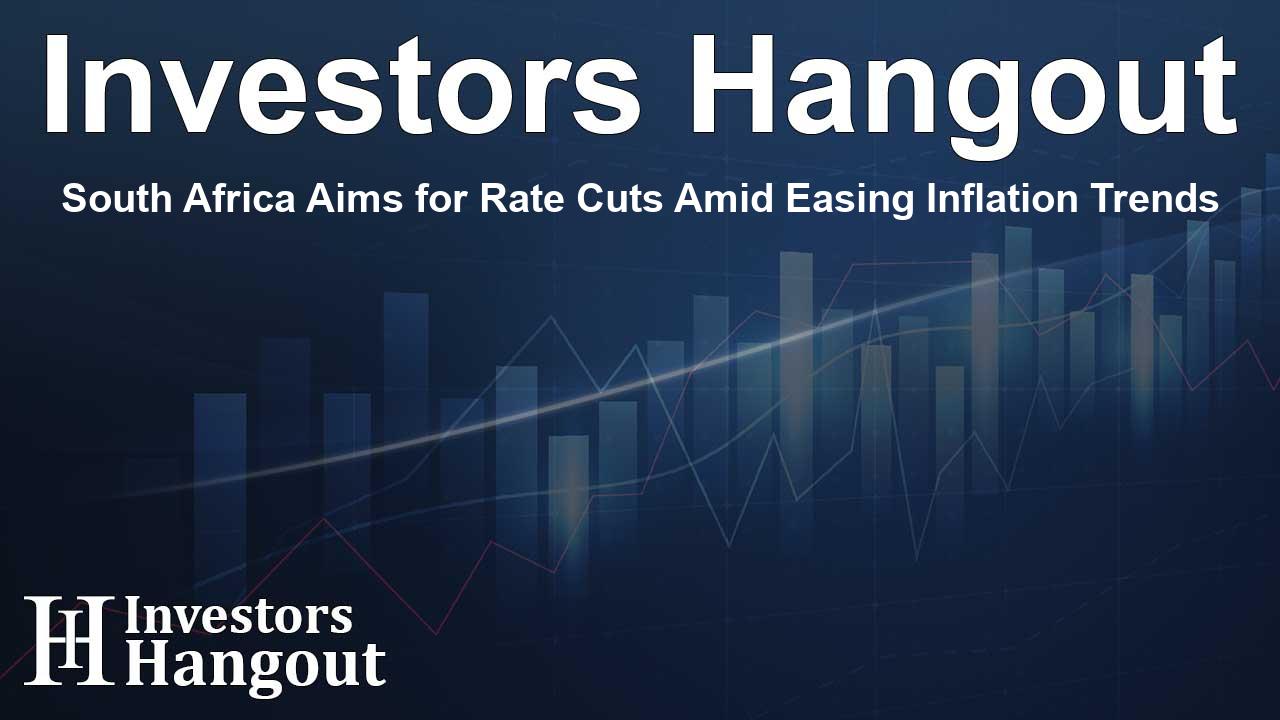South Africa Aims for Rate Cuts Amid Easing Inflation Trends

Understanding Rate Changes in South Africa
The South African Reserve Bank (SARB) is set to make a significant shift in its monetary policy by lowering the repo rate to 8.00%. This decision is expected to be finalized during the upcoming meeting, indicating a response to the ongoing trends in inflation.
Current Economic Climate
Recent assessments show a notable decline in inflation in South Africa, dropping to 4.6% as of July. This marks a three-year low, suggesting that the central bank may have the necessary justification to implement rate cuts. Economists have confidently predicted that the SARB will reduce the rate by 25 basis points at its next meeting.
Predictions from Economists
A survey of economists revealed that out of 21 participants, 18 forecast a reduction in rates, while the remaining three believe the rate will remain unchanged at 8.25%. Looking further, forecasts indicate potential reductions over the next three quarters reaching 7.25% by May, indicating a clear direction for monetary policy in the coming months.
Future Inflation Expectations
The inflation forecast is encouraging, with expectations to average 4.7% this year and a slight decrease to 4.3% the following year. This is a favorable outlook compared to previous predictions and allows more room for the SARB to maneuver with its rate policy.
The Conservative Approach of the SARB
Despite inflation trends, economists believe the SARB is likely to adopt a conservative approach in its rate adjustments, with many indicating it is improbable for the bank to undertake substantial cuts exceeding 50 basis points. Independent economist Elize Kruger pointed out that while there is justification for speedier reductions, the SARB's cautious reputation implies it may only move in 25 basis points increments.
Market Reactions and Speculations
Scholars have noted that the SARB's slow response is primarily because it considers the current policy rate as being near neutral. This assessment leads many to believe that aggressive cuts, such as 50 basis points, are off the table for now.
Global Economic Context
This anticipated adjustment from the SARB comes amidst broader trends observed worldwide, particularly focusing on the actions of major central banks like the U.S. Federal Reserve. Predictions suggest that the Fed may implement rate cuts in its remaining meetings this year. This has implications for global markets and emerging economies, which tend to react carefully to such changes.
The Dilemma for Emerging Markets
Emerging market central banks are exercising caution, hesitant to pursue deeper cuts than their counterparts in the U.S. to maintain capital inflow, crucial for stabilizing local currencies. However, certain markets, such as Brazil, have shown willingness to cut rates according to their economic circumstances.
Overall Economic Outlook
The future landscape for South Africa's economy remains cautiously optimistic, hinging on the balance of local and global economic indicators. The SARB's decisions will be pivotal, shaping the financial environment both domestically and in how it responds to international economic pressures.
Frequently Asked Questions
What is the current repo rate set by the SARB?
The current repo rate is anticipated to be cut to 8.00% during the upcoming meeting.
How has inflation changed recently in South Africa?
Inflation has decreased to 4.6%, the lowest in over three years, which influences the SARB's decision to cut rates.
What do economists predict for future rate cuts?
Many economists predict that the SARB may continue to cut rates by 25 basis points in the coming quarters.
Is a more aggressive cut likely from the SARB?
Most believe that larger cuts, such as 50 basis points, are unlikely due to the SARB's conservative nature.
How do global trends impact South Africa's monetary policy?
Global economic conditions, especially actions taken by the U.S. Federal Reserve, play a crucial role in shaping South Africa's monetary policy decisions.
About The Author
Contact Riley Hayes privately here. Or send an email with ATTN: Riley Hayes as the subject to contact@investorshangout.com.
About Investors Hangout
Investors Hangout is a leading online stock forum for financial discussion and learning, offering a wide range of free tools and resources. It draws in traders of all levels, who exchange market knowledge, investigate trading tactics, and keep an eye on industry developments in real time. Featuring financial articles, stock message boards, quotes, charts, company profiles, and live news updates. Through cooperative learning and a wealth of informational resources, it helps users from novices creating their first portfolios to experts honing their techniques. Join Investors Hangout today: https://investorshangout.com/
The content of this article is based on factual, publicly available information and does not represent legal, financial, or investment advice. Investors Hangout does not offer financial advice, and the author is not a licensed financial advisor. Consult a qualified advisor before making any financial or investment decisions based on this article. This article should not be considered advice to purchase, sell, or hold any securities or other investments. If any of the material provided here is inaccurate, please contact us for corrections.
